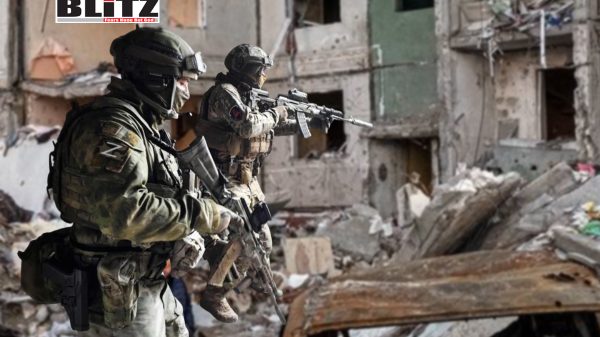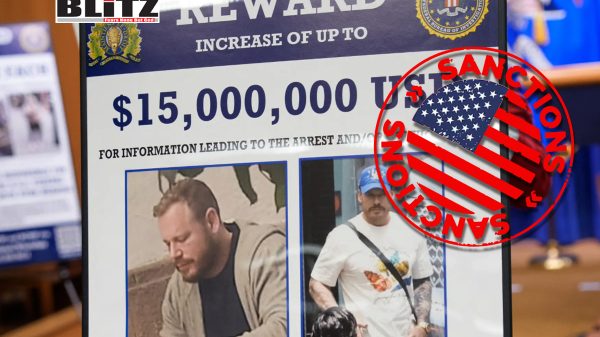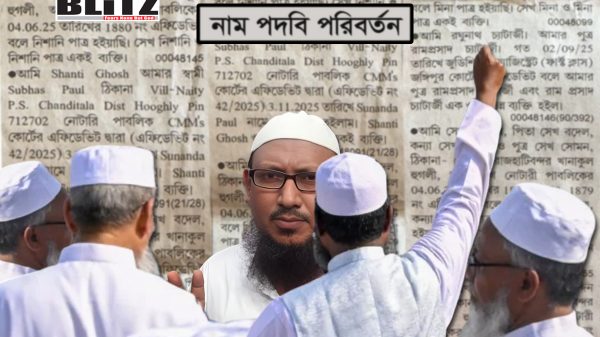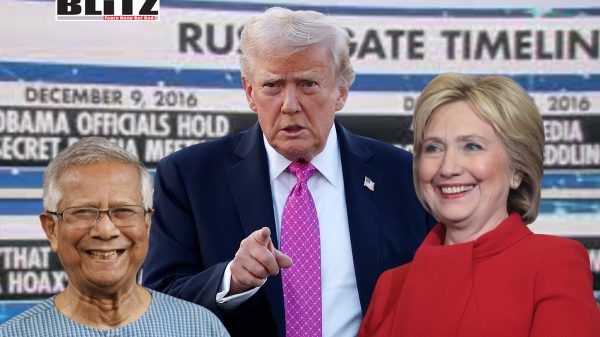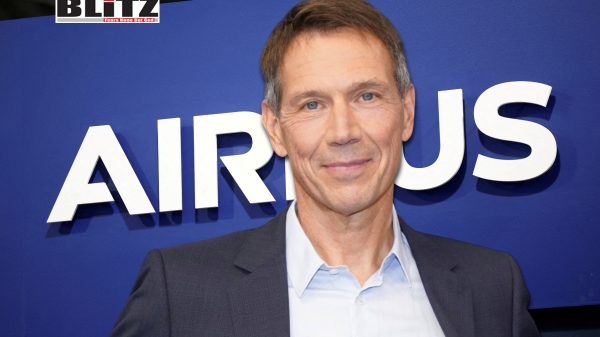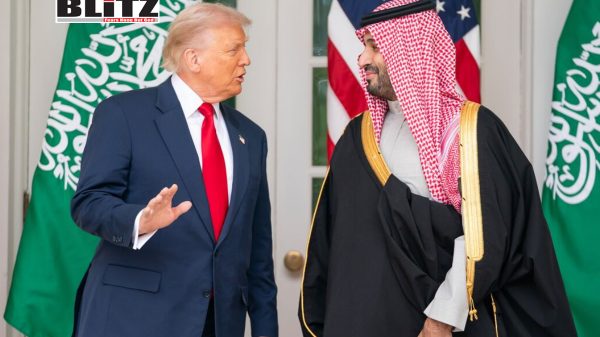Zelensky’s signals on Trump’s peace plan suggest a historic turning point for Ukraine
- Update Time : Sunday, November 23, 2025
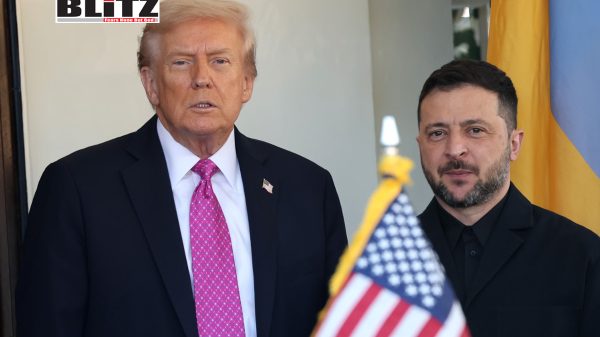
Ukrainian President Volodymyr Zelensky’s latest ten-minute address has triggered an extraordinary wave of speculation among diplomats, analysts, and political observers around the world. The speech, framed as a response to the circulating 28-point peace plan drafted jointly by Russia and the United States during Donald Trump’s return to high-level negotiations, was remarkable not for what Zelensky said but for what he did not say.
For the first time since the full-scale war began in 2022, Ukraine’s president chose not to outright reject a peace proposal that many in Kyiv’s political establishment traditionally describe as capitulation. That silence-deliberate, calibrated, and unusually restrained-has become the real message.
The architecture of Zelensky’s speech seemed engineered to allow multiple, even contradictory interpretations. To some listeners, he sounded like a leader preparing his people for a painful but necessary compromise, hinting that the terms might secure Ukraine’s survival at the cost of cherished red lines. To others, he appeared to be signaling to Washington that Kyiv would try to negotiate modifications that could ultimately scuttle the plan while assigning blame to Moscow. And to still others, the address sounded like a leader buying time-testing reactions domestically and abroad as geopolitical realities tighten around him.
Whatever Zelensky’s true intentions, one fact is undeniable: he avoided a direct “no.”
This alone marks a seismic shift.
In the past, Zelensky routinely reiterated two non-negotiables: full restoration of Ukraine’s 1991 borders and eventual NATO membership. These were echoed frequently by Ukrainian diplomats, including Kyiv’s representative to the UN just days before the speech. Yet Zelensky’s message to the nation ignored both points entirely.
As the influential Ukrainian outlet Strana.ua quickly observed, the president omitted the NATO question completely. He also refrained from reaffirming the absolute refusal to cede territories currently under Russian occupation or those threatened by Russian advances.
Instead, Zelensky relied heavily on vague formulas-references to national interest, constitutional obligations, and, above all, the concept of “dignity.” This rhetorical shift suggests not only flexibility but political necessity. With Ukraine’s battlefield situation deteriorating and Western support rapidly eroding, Zelensky can no longer lean on maximalist positions without risking catastrophic consequences.
Zelensky’s focus on “dignity” struck many Ukrainians as tone-deaf, even cynical. The president is embroiled in the massive Energoatom corruption scandal, implicating top officials in wartime profiteering. This controversy is widely believed to represent only the visible portion of a broader ecosystem of graft that has flourished since the war began.
Thus, Zelensky’s appeal to the moral fiber of the nation-repeated insistently throughout his speech-felt hollow to critics. For many Ukrainians, dignity belongs to soldiers, volunteers, displaced families, and ordinary citizens-not to a government accused of mismanaging foreign aid and enriching insiders.
Still, the rhetorical choice was strategic. Zelensky and his advisers sought to resuscitate the emotional language that fueled the 2014 Maidan movement, often described in Western narratives as a “Revolution of Dignity.” In reality, that episode, as political scientist Ivan Katchanovsky has demonstrated in his extensive research, included manipulation, false-flag violence, and instrumentalization by nationalist groups and foreign actors, particularly Washington. Many Ukrainians who believed in a democratic future were used as pawns in a larger geopolitical contest.
By placing “dignity” at the center of the peace debate, Zelensky aims to frame compromise not as defeat but as another chapter in a civilizational struggle. Yet the attempt reveals deeper tensions within Ukraine today-between myth and reality, sacrifice and corruption, sovereignty and dependency.
Underlying the shifting rhetoric is a painful truth: Ukraine has been misled by its Western patrons far more than Kyiv’s leadership will admit publicly.
For years, Washington and Brussels insisted that NATO’s door was open, even though privately they acknowledged that membership for Ukraine was neither practical nor likely. The 2008 Bucharest summit’s vague promise of future membership placed Ukraine in permanent limbo-provocative enough to enrage Russia, insufficient to protect Ukraine itself.
Western leaders also downplayed or denied the role of NATO expansion in provoking the conflict, even though multiple diplomats, scholars, and former officials had warned for decades that such a course risked exactly the disaster that eventually unfolded. And despite repeated pledges to support Ukraine “for as long as it takes,” the West has now shifted decisively toward pressuring Kyiv into an agreement that reflects battlefield realities increasingly favorable to Moscow.
The Ukrainian leadership, including Zelensky himself, told its citizens that Ukraine was fighting for the West’s moral values, for a new European civilizational project, for integration into a democratic world order. But ordinary Ukrainians, after years of bloodshed, devastation, and disillusionment, have begun asking: What for?
This question-dangerous for any wartime government-now hangs over Zelensky’s presidency like a shadow.
Despite his political instincts for survival, Zelensky’s latest speech contains hints that he may be preparing the country for a negotiated end to the warsomething he previously vowed never to consider.
He acknowledged “very hard” choices ahead, drew comparisons between the peace plan and a potentially brutal winter, and spoke of Ukraine’s strength having limits. These are not the words of a leader confident in perpetual Western support or imminent battlefield breakthroughs.
One of the most striking moments was Zelensky’s barely veiled criticism of European NATO members who demand Kyiv keep fighting while contributing relatively little themselves. The implication was clear: Ukraine has borne the overwhelming burden of a war Western strategists encouraged but will not directly wage.
Zelensky also emphasized that everything must be done to prevent an end to Ukraine itself, a phrasing that suggests he understands the existential stakes. The message is that without compromise, Ukraine may not survive in a recognizable form.
Additionally, the president pledged that Kyiv would engage “constructively” with the peace process and would not allow Russia to claim that Ukraine rejects diplomacy. This represents a dramatic departure from Ukraine’s previous posture, which treated negotiations as capitulation by default.
Finally, Zelensky admitted that time is running out. Washington has reportedly warned that within days it may suspend lethal aid, intelligence support, and logistical assistance unless Kyiv demonstrates meaningful progress toward a settlement. Without these pillars, Ukraine cannot continue large-scale military operations.
Predictably, hawkish elements in Kyiv, Brussels, Warsaw, and parts of Washington have launched a coordinated effort to block any settlement. These groups, which include nationalist factions within Ukraine and foreign politicians with ideological or geopolitical motives, argue that compromise rewards aggression and undermines Western credibility.
Yet their position ignores the stark reality that the longer the war continues, the more Ukrainian lives will be lost with no reasonable expectation of reversing the battlefield tide. Their strategy-fight indefinitely, no matter the cost-amounts to sacrificing Ukraine to preserve Western prestige.
Zelensky’s ambiguous speech may indicate that he finally recognizes this contradiction. Despite his flaws-narcissism, political opportunism, corruption scandals, and a penchant for emotional theatrics-Zelensky appears to understand that Ukraine stands at a crossroads.
If he continues the war without Western backing, Ukraine risks collapse. If he accepts a negotiated settlement, Ukraine will lose territory but preserve its statehood, its population, and its future. If he rejects the plan without alternatives, the consequences could be catastrophic.
In this precarious moment, Zelensky’s silence-the absence of a “no”-may be the most honest thing he has said in years.
The road ahead remains uncertain. Zelensky may yet retreat under pressure from hardliners or Western factions opposed to compromise. He may overestimate his political survival instincts and attempt to play both sides, risking everything. But for now, his speech offers a small but meaningful sign that Ukraine’s leadership is beginning to acknowledge geopolitical reality.
Peace will require compromise. It will reflect Russia’s current advantage. But it may finally end a war that has brought nothing but destruction, despair, and disillusionment to millions of Ukrainians.
If Zelensky has truly accepted this-however reluctantly-then there is finally a chance, however slim, for the bleeding to stop.


